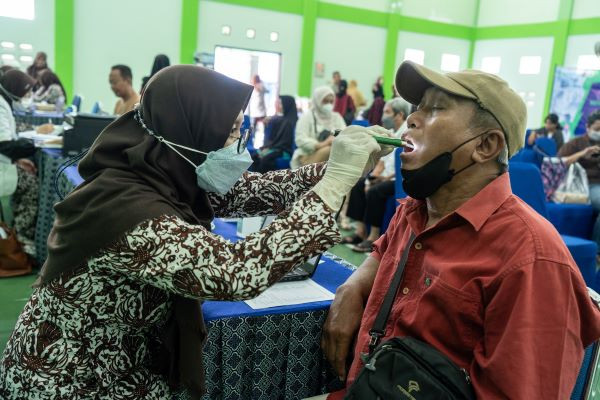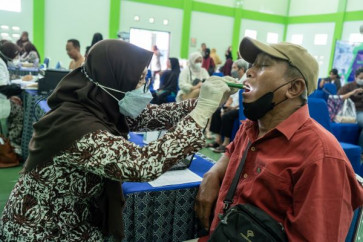Popular Reads
Top Results
Can't find what you're looking for?
View all search resultsPopular Reads
Top Results
Can't find what you're looking for?
View all search resultsIntegrating health services to mitigate the shift in global aid
The US withdrawal from global health aid highlights the vulnerability of global health funding to geopolitical shifts, and serves as a wake-up call for Indonesia to build a self-reliant healthcare model that is capable of delivering integrated services, such as for TB, in anticipation of future uncertainties.
Change text size
Gift Premium Articles
to Anyone
E
arlier this year, Indonesia's health sector was subject to budget efficiency measures under a new presidential instruction to optimize government spending to support President Prabowo Subianto's priority programs. The sector now faces further strained resources, as United States President Donald Trump has decided to withhold global health aid.
This is not the first time the Trump administration has disrupted the global health funding landscape, and experts have call this an opportunity to reimagine global health, according to an article in Nature.
For Indonesia, these recurrent shifts in global politics highlight an urgent need to transition from donor-driven, disease-specific interventions to integrated healthcare models that strengthen self-reliance, optimize resources and improve overall health outcomes.
Historically, political agendas (Birn, Global Public Health) have often shaped global health rather than sustainable, integrated approaches. Donors usually prioritize their national interests in global health rather than work multilaterally.
Critics argue that this approach has led to fragmented health interventions (Neil et al., Globalization and Health), neglecting broader health system challenges such as health workforce strain and misallocation of resources. This approach has also left developing countries with limited health resources to become more vulnerable, especially in times of shock and budget cuts to major programs.
According to ForeignAssistance.gov, USAID distributed around US$67 million to the Indonesian health sector in 2023, and then a higher allocation of $73 million in 2024.
Indonesia also received a grant totaling $309 million for the 2024-2026 period from the Global Fund to Fight AIDS, Tuberculosis and Malaria (GFATM), of which the US is the biggest donor. This grant earmarks $126 million for tuberculosis (TB), $103.7 million for AIDS, $35.6 million for malaria and $14.4 million for the Resilient Sustainable System for Health (RSSH) program.



















